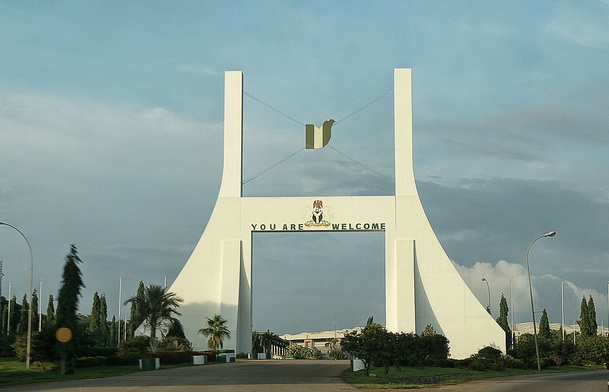Opinion
A Nation Tried By History

By Jerome-Mario Utomi
Separate from recent gradual and silent encroachment on, and outright abridgements of the masses welfare by the Federal Government via increase of Value Added Tax (VAT) from five to 7.5 per cent, re-introduction of Stamp Duty Charge, re- introduction of Stamp Duty on house rents and C of O transactions and the electricity and Petrol price hikes crisis which are inextricably linked both in their causes and solutions, and have caused Nigerians to stagger in confusion and incomprehension, more facts are beginning to emerge in support of the age-long believe that some knowledge of history is useful in leadership.
As all the evidence and arguments necessary to have made the right decisions were incredibly available, but proclivity for ignoring lessons from, and failures to study the actions of past leaders, to see how they conducted themselves and discover the reasons for their victories or their defeats, have left us as a nation to wonder in dilemma.
From this awareness flows another meaning, relevance and sharp contrast about history. This is perhaps more noble than the first. It is the fact that not all historical accounts are worth remembering; particularly, accounts of unpalatable injustices and hopelessness fueled by leaders past decision/policies devoid of consideration for connecting the poor with good means of livelihood-food, job and security. Of which such commissions have partially or wholesomely left the masses at the basement of economic structures. And in more than one way prompts the thought where the living considers and envy those who are dead and gone as better than those who are still alive.
Take Nigeria where the statistics of anti people policies and injustices are staggering and mind-numbing as an example. Historical accounts become painful when one commits to memory the fact that they(past leadership decision that formed history) are responsible for today’s abiding tradition of development challenges such as; insecurity, widespread poverty, terrorism, unchecked population explosion, technological backwardness, corruption, poor planning and implementation of policies, infrastructural decay, gross injustice, ethnic politics, and practice of democracy that neither underwrites social justice nor promotes social mobility.
Each of these crises has its roots in, or a combination of, leaders payment of low attention to warnings about what is certain to come, and what is to come if the situation is not changed; formulation of policies with no clear definition of problem, the goals to be achieved, or the means chosen to address the problems and to achieve the goals. Adoption of coquettish tactics that make the masses fall in love with excitement while they (leaders) remain inwardly detached; keeping them in control
There are recent examples.
First and very key is President Muhammadu Buhari’s double-faced expression of concern about the sudden spiral of food prices, at a time when the economy is already mired in a slowdown occasioned by the global coronavirus situation. He said: “While Providence has been kind to us with the rains and as such an expectation that a bumper harvest would lead to crashing of food prices and ease the burdens on the population, government’s concern is that the exploitative market behaviour by actors has significantly increased among traders in the past few years and may make any such relief a short lived one.
This feeling of ‘anxiety’ by Mr. President came barely few weeks after a similar declaration by him during an interview with The Signature 50 magazine, where he noted that, his greatest regret is that despite international ratings, lives of Nigerians are yet to improve as he had expected. Submitting that the progress being made in the last five years has only reflected on the international rating of the nation’s economy not on the lives of Nigerians.
But why should this piece be fixated to the extent of describing the above ‘well considered expression’ from Mr. President as double-faced?
One possible answer lies in the philosophical idea of reality. Nigerians and of course the global community are in agreement that one cannot be talking about improving the masses life chances with hikes in electricity and Petrol.
From the present reality comes another striking observation that history not only qualifies as sad but a reality that Nigerians should worry about.
In May 2013, General Buhari, a former Head of state and presidential candidate of Congress for Progressive Change (CPC) (as he then was), going by media reports told Nigerians that the economy of the country would continue to slide unless the security and other challenges were checked. Many agreed that though Buhari may not be an economic Buff, but his statement paints a precarious picture of the ugly economic situation in the country, especially regarding the revenue accruing to the nation.
Today, Nigerians have matched with Buhari as President for over 5 years. Yet, the country is still going through the pangs of hardship resulting from those economic challenges he (Buhari) complained about in 2013. Infact, those challenges are not only alive and active but in some cases tending from bad to worse.
From this account, one may be tempted to ask; why is Mr. President finding it difficult to fix a problem he personally identified two years before he became the President? Is it that the so called challenges talked about in 2013 never existed? Was he just playing to the gallery? On the much talked costs of food and commodities, why can’t the cost of goods and services including agricultural produce go up when it is obvious that deregulation of the energy sector would discourage the production and increase unemployment as there are direct relationship between energy cost and the vibrancy of local production?
While it is expedient at this point for all to draw a moral lesson from the above that it is easy to criticize than raising fingers to solve a problem, it is important to add that Nigerians have in the past five years under the present administration seen oppression. And there is no one to comfort them because on the side of their oppressors there is power.
But more important than this fact, if we look honestly at our nationhood, the most telling reason for the nation not matching forward but groping and stumbling goes beyond the President to include some Nigerians who still believe that Mr. President should not be blamed for the nation’s present predicament and fragile state that has gotten to the extent that it is difficult to build consensus around important things that matter for our progress.
While arguing in a recent conversation that no leader is held to perfection in formulation and execution of policies, this circle of friends told me that the present hardship in the country is not Nigeria specific as Saudi Arabia’s finance minister, Mohammed al-Jadaan also in a recent statement released by the official Saudi Press Agency stated that the cost of living allowance has been halted from June 2020 and VAT raised from 5 percent to 15 percent from July 1.
Though totally disoriented by the logic as it is obvious that what they are giving to Mr. President is a forlorn hope, I however tried not to betray my disconnection. But not without asking these questions; why amplifying Saudi’s belt tightening policies and silent about how the same governments have drastically caught the cost of governance? Why can’t President Buhari copy a similar policy? Why did he suddenly change his promise from revamping Nigeria’s moribund refineries and construction of new ones to achieve self-sufficiency in access to refined products, to the continuous importation of petrol at prices to be determined by international market forces?
While answers to these questions will be well appreciated by Nigerians, it will equally be rewarding in political and socioeconomic terms to remind Mr. President that in 2015, his administration was born into history, presently lives and exists in history and definitely will transmit to future accounts as history is never static, fived, frozen but remains a living issue.
As the nation therefore wait on history to unfold, the current happenings in the country in my views is a betrayal of the trust of millions of Nigerians who defied all odds to vote out the PDP and vote him into power.
- Jerome-Mario Utomi is a Lagos-Based Media Consultant.







